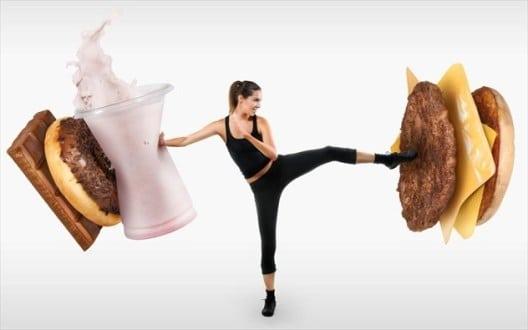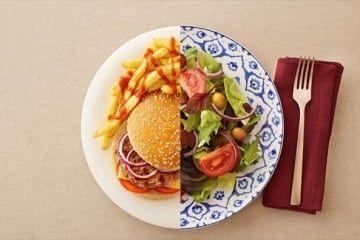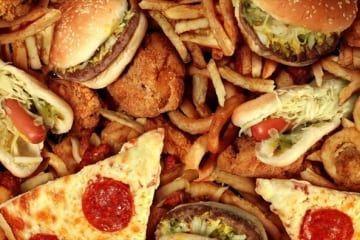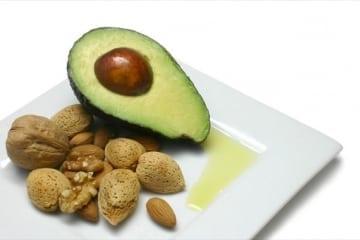
We should not take them out of our diet. Just to recognize fats in the diet and prefer the ones that are good for us.
If we could go back in time, we would find that until relatively recently just hearing the word "fat", we felt like we were getting fat. Fats have been widely blamed for weight gain, but also for the harmful effects they have on the body and most have ended up either avoiding them as much as possible or consuming them with anxiety and regret.
Things, however, are not exactly like that and it is now clear separating them into good, bad and... worse, as is also clear the fact that the right choices benefit us, as stated by Anastasia Kokkali, Clinical Dietitian-Nutritionist.
 Fats, after all, are what help our body to absorb them vitamins and metals that consumes, contribute to the creation of hormones, benefit the skin, give energy and of course give delicious taste and texture to food.
Fats, after all, are what help our body to absorb them vitamins and metals that consumes, contribute to the creation of hormones, benefit the skin, give energy and of course give delicious taste and texture to food.
So instead of dismissing them, understand them and consume them properly.
"Good" fats
This category includes monounsaturated fats, found in foods such as olive oil, raw almonds, walnuts, avocados, etc., and polyunsaturated, which includes omega-3 and omega-6 fatty acids and we get them from foods such as fatty fish (salmon, anchovy, sardines, mackerel, haddock), raw nuts, flaxseed, chia seeds, soy and some greens such as chard and chard.
 Both monounsaturated and polyunsaturated fats benefit us in different ways. First of all, monounsaturated fatty acids help control weight, contribute to lowering cholesterol, increasing the "good" HDL cholesterol and they protect us against diabetes. Polyunsaturated fats, due to the fact that we do not synthesize them ourselves, are extremely necessary for us through the diet, as they are good for the brain, but also the skin, while they protect the health of the heart and reduce the risk of cardiovascular diseases, as the expert emphasizes.
Both monounsaturated and polyunsaturated fats benefit us in different ways. First of all, monounsaturated fatty acids help control weight, contribute to lowering cholesterol, increasing the "good" HDL cholesterol and they protect us against diabetes. Polyunsaturated fats, due to the fact that we do not synthesize them ourselves, are extremely necessary for us through the diet, as they are good for the brain, but also the skin, while they protect the health of the heart and reduce the risk of cardiovascular diseases, as the expert emphasizes.
How much to consume daily: If you're on a 2000 calorie a day diet, take care of one 15-20% (ie the 300-400 calories) to come from from monounsaturated fats and another one 10-15% (another 200-300 calories) from polyunsaturated fatty acids. In a more general context, you have to be careful do not exceed 30% of your daily caloric intake in fat, according to Mrs. Kokkalis.
"Bad" fats
This category includes saturated fat, as well as the worst kind of fat, the trans fatty acids. Saturated fat is the fat we get from meat fat, dairy products, animal butter, baked goods that have cheese and cream and although they are not considered as harmful as trans fat, they are still needed attention to their consumption, as they are related to the occurrence of cardiovascular diseases, but also to various forms of cancer.
The worst side of fats, however, are trans fats, which they actually are hydrogenated fats to become more solid and you will find them on food labels as both hydrogenated and partially hydrogenated fats. We find these fats in processed foods, from fast food products to croissants and shrimps and their harmful effects, after long-term and mindless consumption, are related to an increase in total and "bad" cholesterol, leading to heart problems, while they also increase the risk of colon cancer, as well as breast cancer.
 How much to consume daily: As you can see, trans fats should slowly come out of your kitchen and diet, as not only do they have no nutritional value, but they are also bad for you. Saturated fats can be consumed in a percentage 10% of total calorie intake per day, as the expert explains, that is, about 200 calories, in a diet of 2 thousand calories a day.
How much to consume daily: As you can see, trans fats should slowly come out of your kitchen and diet, as not only do they have no nutritional value, but they are also bad for you. Saturated fats can be consumed in a percentage 10% of total calorie intake per day, as the expert explains, that is, about 200 calories, in a diet of 2 thousand calories a day.
Tips to increase the good fats and reduce the bad ones
- Make sure your snacks consist of raw nuts, dried berries and unsalted pumpkin and sunflower seeds and not cookies, croissants and various pastries, puffs, pies.
- Remove visible fat from red meat before cooking and reduce its consumption to once a week, increasing fish consumption in 2-3 times a week.
- Put olive oil and avocado on your salads and avoid mayonnaise and ready-made dressings.
- Say "no" to ready-made food on the outside, in pancakes, in ready-made sweet and savory snacks, in donuts, cookies and wherever you read on the labels hydrogenated or partially hydrogenated olive.
- Find out for yourself the trans fat in the products you are going to buy by adding up the grams of saturated fat, monounsaturated and polyunsaturated fat and if it is less than the total amount of fat on the label, the rest means it is trans fat. In these cases reduce or avoid such foods.

No Comments